Guide Tailles Bébés & Enfants
| Bébé | ||||
|---|---|---|---|---|
|
Age (mois)
|
Poids moyen (kg)
|
Taille (cm)
|
|
|
|
Nourrisson
|
3.3
|
50
|
|
|
|
1
|
4
|
54
|
|
|
|
3
|
5 - 6
|
60
|
|
|
|
6
|
7 - 8
|
67
|
|
|
|
9
|
8 - 9
|
71
|
|
|
|
12
|
9 - 10
|
74
|
|
|
|
18
|
11
|
81
|
|
|
|
24
|
12
|
86
|
|
|
|
36
|
14
|
94
|
|
|
|
|
|
|
|
|
|
Filles
|
|
|
|
|
|
Age (ans)
|
Taille (cm)
|
Tour de poitrine (cm)
|
Tour de taille (cm)
|
Tour de hanche (cm)
|
|
2
|
83 - 88
|
52
|
48
|
56
|
|
3
|
88 - 96
|
54
|
50
|
58
|
|
4
|
96 - 104
|
56
|
52
|
60
|
|
5
|
104 - 110
|
58
|
53
|
62
|
|
6
|
110 - 116
|
60
|
54
|
64
|
|
7
|
116 - 122
|
62
|
55
|
66
|
|
8
|
122 - 128
|
64
|
56
|
70
|
|
9
|
128 - 134
|
67
|
57
|
73
|
|
10
|
134 - 140
|
70
|
59
|
76
|
|
12
|
140 - 152
|
78
|
62
|
84
|
|
14
|
152 - 158
|
82
|
64
|
88
|
|
16
|
158 - 164
|
86
|
66
|
92
|
|
|
|
|
|
|
|
Garçons
|
|
|
|
|
|
Age (ans)
|
Taille (cm)
|
Tour de poitrine (cm)
|
Tour de taille (cm)
|
our de hanche (cm)
|
|
2
|
83 - 88
|
52
|
48
|
56
|
|
3
|
88 - 96
|
54
|
50
|
58
|
|
4
|
96 - 104
|
56
|
52
|
60
|
|
5
|
104 - 110
|
58
|
53
|
62
|
|
6
|
110 - 116
|
60
|
54
|
62
|
|
7
|
116 - 122
|
62
|
55
|
64
|
|
8
|
122 - 128
|
64
|
56
|
66
|
|
9
|
128 - 134
|
67
|
57
|
69
|
|
10
|
134 - 140
|
68
|
59
|
72
|
|
12
|
140 - 152
|
75
|
66
|
78
|
|
14
|
152 - 164
|
82
|
70
|
86
|
|
16
|
164 - 176
|
89
|
74
|
92
|
Sur La Philosophie Africaine: Critique De Líethnophilosophie
50,29€
Many contemporary African writers remain trapped in the quest for a worldview, philosophy, supposing a single « African » demesne to explain the entire continent, referring to a mythical past. Paulin Hountondji shows how these strange conceptual constructions have played a positive role in the resistance led by intellectuals of colonial rule: they responded to the negation of the oppression that it comprised of, but it was an ambiguous answer, especially because it was built on the principles derived from the works of European ethnologists, particularly the Père Tempels. Independence opened a new historical period; these philosophical elaborations changed direction: once an expression of anti-colonial resistance, they are nowadays an ideology that justifies and reinforces the dominance of the contemporary state; the intellectuals who create them are today only the « griots » of the regimes in place. Analysing without complacency the work of Nkrumah, of the Cameroonian Towa, and of the Rwandan Kagamé, amongst others, Hountondji exposes and denounces this antagonism. To him, the critical project proposed in this book seems a necessary step on the way to « the liberation of theoretical creativity, » the peoples of Africa and their full participation in the universal intellectual debate!

 English
English
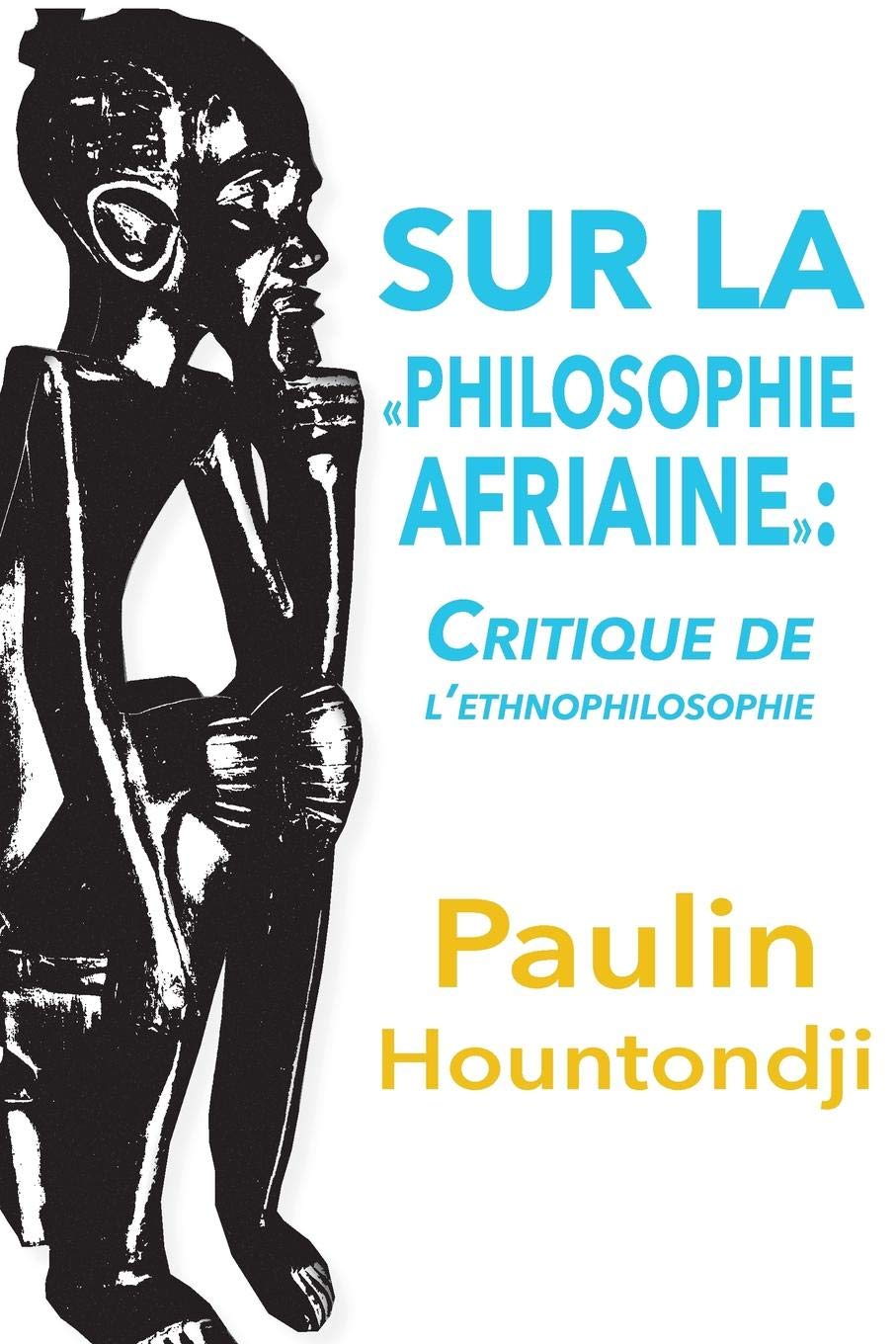
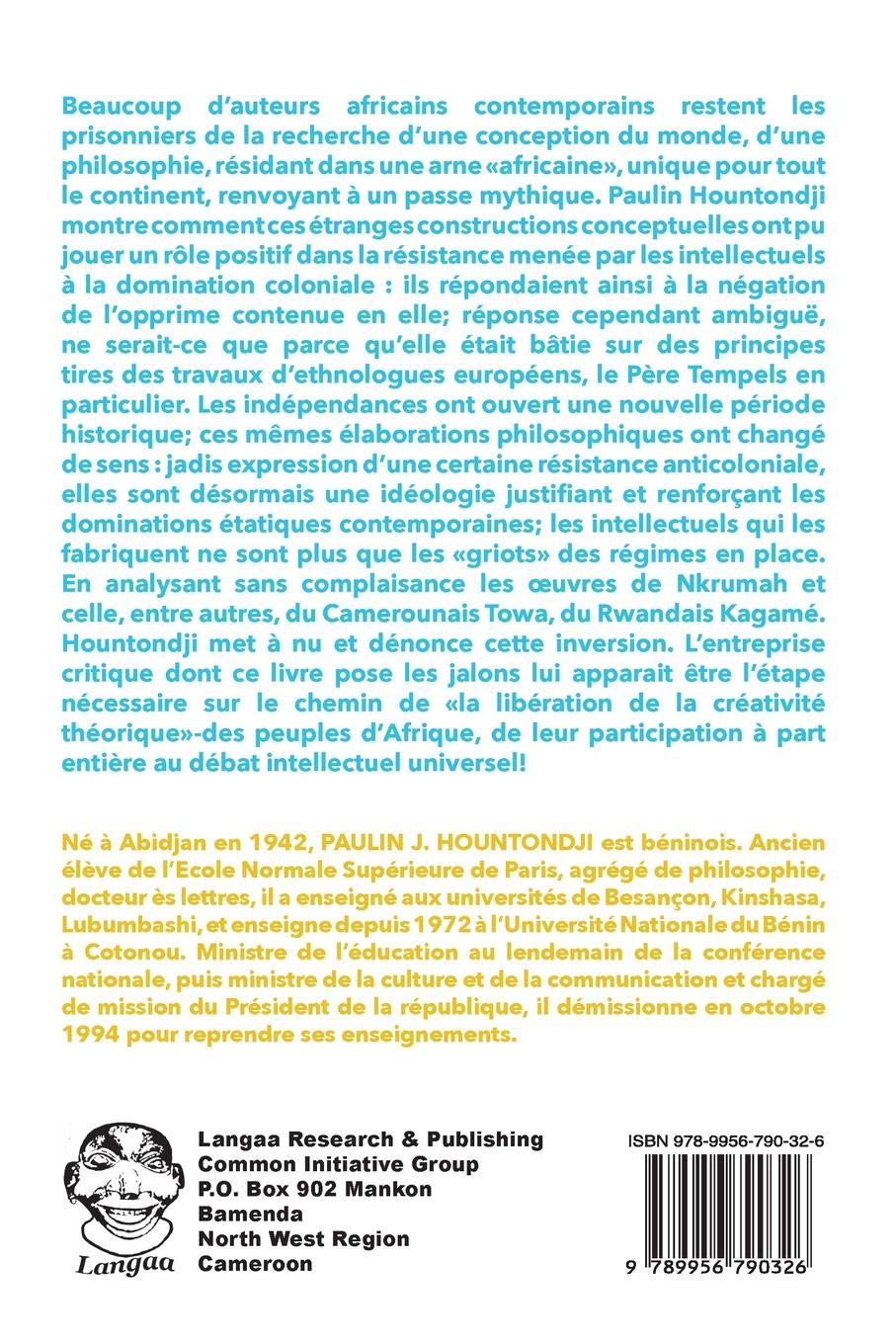
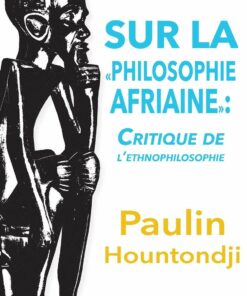
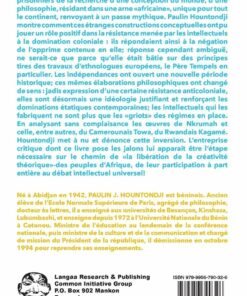
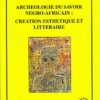


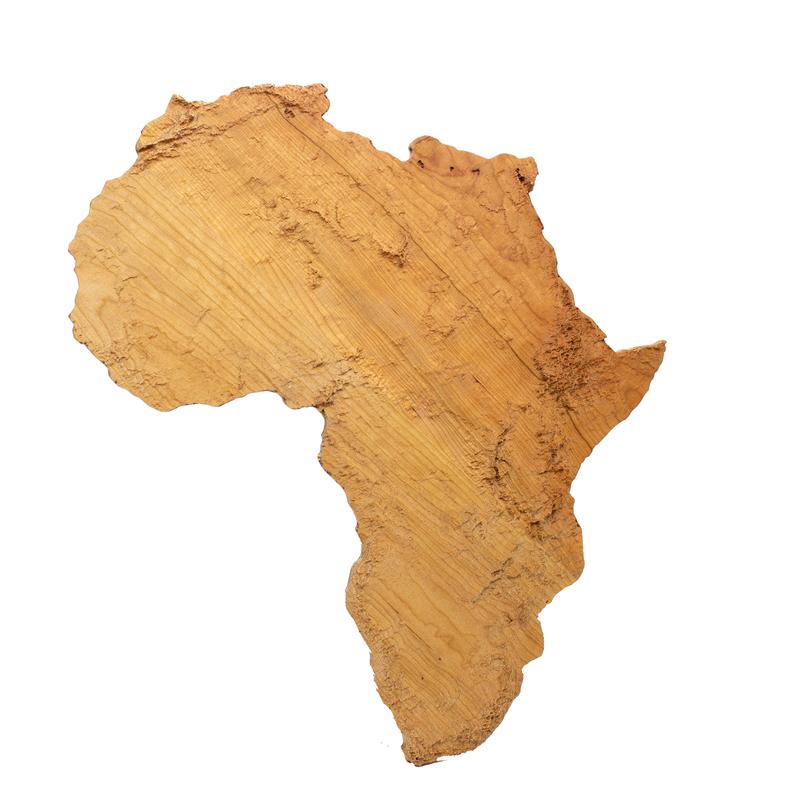

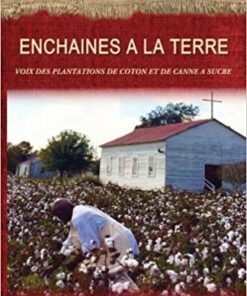
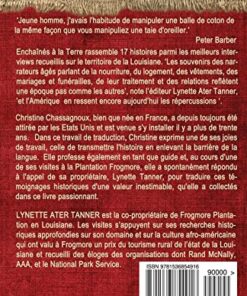
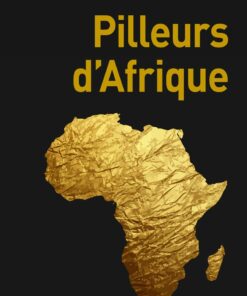
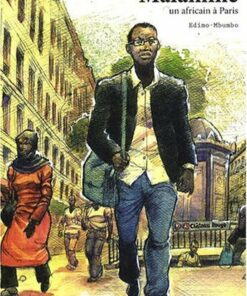
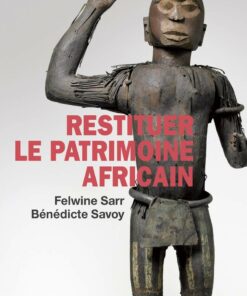
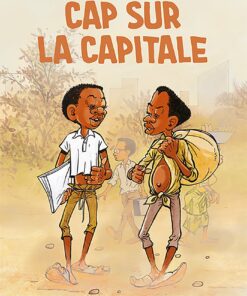
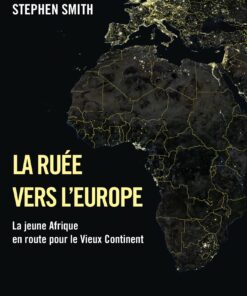
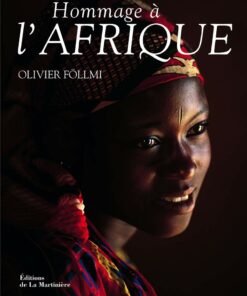
Avis
Il n’y a pas encore d’avis.